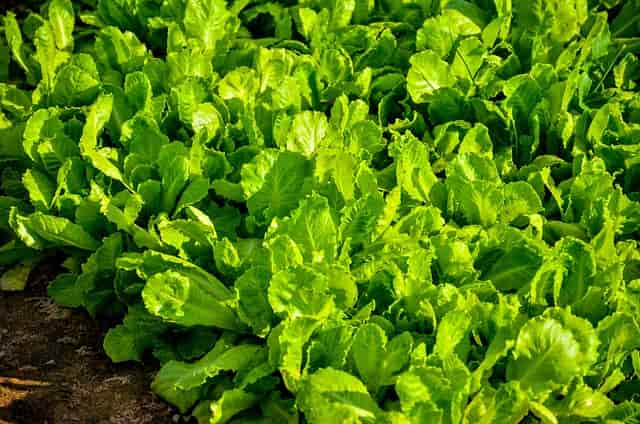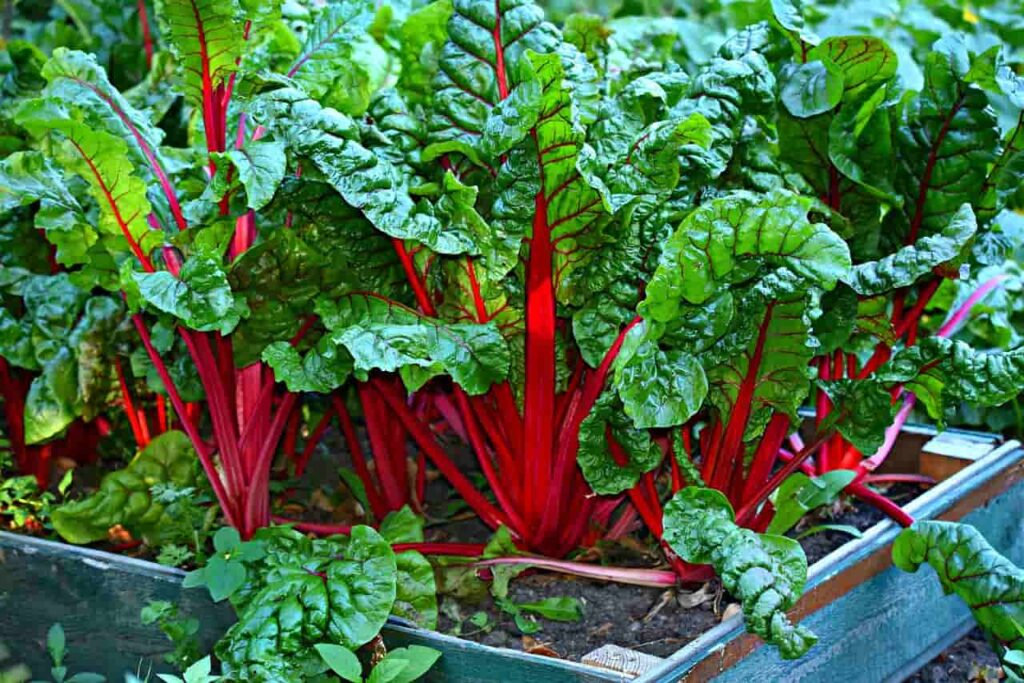In the world we inhabit today, the echoes of sustainability and health reverberate louder than ever. Amidst the cacophony of modern agricultural practices, a harmonious tune that has steadily gained volume is that of organic farming.
This approach, characterized by its gentle touch on the earth and care for its inhabitants, presents not just an alternative, but a solution to the pressing environmental and health challenges we face.
As we delve into the realm of organic farming and its impact on the environment, it is important to understand its principles, benefits, and the practicalities that accompany its adoption. Through this exploration, we aim to uncover how embracing chemical-free agriculture can pave the way for a sustainable future.
What is Organic Farming?
At its core, organic farming is a holistic agricultural system that seeks to create ecosystems that achieve sustainability and ecological balance. It avoids the use of synthetic fertilizers, pesticides, and genetically modified organisms (GMOs), relying instead on natural processes and materials to enhance soil fertility and plant growth.
This approach considers the long-term health of the environment, the producers, and the consumers alike.
The principles of organic farming are rooted in the preservation of soil health, biodiversity, and resource cycling. By fostering a harmonious relationship between the land and its inhabitants, organic farming aims to produce food in a way that sustains the health of soils, ecosystems, and people.
It’s a philosophy that extends beyond the absence of certain substances; it’s about promoting life-enhancing practices that respect natural cycles.
Organic farming is not a new concept. It has been practiced for millennia, long before the advent of chemical agriculture. However, in the modern context, it represents a return to those practices that prioritize the health of the planet and its people over short-term gains.
The resurgence of interest in organic farming is a response to the growing awareness of the negative impacts of conventional farming and a collective desire for a more sustainable future.
The Principles of Organic Farming
Organic farming is based on a number of fundamental principles that govern its practices and objectives. To start with, there is the principle of health, which emphasizes the preservation and enhancement of the health of the soil, plant, animal, human, and planet as one and indivisible.
This principle emphasizes the belief that healthy soil results in healthy food, which in turn, leads to healthy people.
The second tenet is ecology, which sees the farm as a living thing that needs to be nourished in balance with natural cycles and systems.
Thirdly, the principle of fairness calls for equity, respect, and justice for all those involved in the farming process, from the soil to the consumer.
Last but not least, the principle of care advocates for a precautionary approach to farming, protecting the health and well-being of current and future generations and the environment.
Organic Farming Practices and Techniques
Organic farming employs a myriad of practices and techniques designed to enhance soil fertility and pest control without resorting to synthetic chemicals. Crop rotation, cover cropping, and green manuring are important strategies for maintaining soil health and nutrients.
These practices not only prevent soil degradation and erosion but also foster a rich, biodiverse ecosystem below the ground. Integrated pest management (IPM), which includes biological pest control and the use of natural predators, helps manage pest populations without harming the environment.
Besides, organic farmers usually adopt agroforestry and permaculture principles, integrating trees and perennials into their farm landscapes to enhance biodiversity and ecosystem resilience.
Impacts of Organic Farming on the environment
1. Conservation of Soils
Soil conservation is one of the main environmental advantages of organic farming. For this reason, organic farmers prioritize soil health and use crop rotation, organic fertilizers, composting, and cover crops, among other practices. As a result, erosion is decreased, water retention is increased, and soil structure is enhanced.
Because they absorb carbon dioxide from the atmosphere, healthy soils act as carbon sinks and help to slow down global warming. Organic farming contributes to the preservation of soil biodiversity and microbial activity by eschewing synthetic fertilizers and pesticides.
Again, organic farming employs reduced tillage techniques to reduce soil erosion and enhance soil structure, hence improving soil water and nutrient retention.
2. Encourages Biodiversity
Once more, biodiversity is fostered by organic farming. Organic farms offer a haven of refuge for birds, beneficial insects, as well as other wildlife since they don’t employ synthetic pesticides or GMOs.

Apple field
This creates a thriving ecosystem wherein natural predators may organically manage pests. Once more, maintaining biodiversity helps make agricultural systems resilient and long-lasting.
Organic farms contribute to the protection of biodiversity by offering homes for a wide variety of plant and animal species. Chemical inputs should be avoided to preserve wildlife, birds, as well as other beneficial insects that are essential to the health of ecosystems.
Organic farming methods usually involve hedgerows and agroforestry to enhance habitat diversity and ecological resilience.
3. Water Conservation
Another major focus of organic farming is water conservation. By using water-saving methods like mulching and drip irrigation, organic farms reduce their impact on water resources.
This is particularly important in places where water scarcity is a major issue. Contrarily, conventional agriculture frequently depends too much on irrigation, which causes runoff of fertilizer to pollute the environment and deplete water supplies.
Organic farming methods limit the danger of chemical runoff into water systems, therefore enhancing water quality. Organic agriculture reduces groundwater contamination because it uses fewer synthetic fertilizers and pesticides.
Again, water-conservation strategies such as mulching and drip irrigation are frequently used in organic farming, which lowers overall water consumption.
4. Promotes the Good Health of Our Water systems
Additionally, organic farming supports the health of our water resources. Synthetic fertilizers and pesticides used in conventional agriculture have the potential to leak into lakes, rivers, and big water bodies, disrupting aquatic ecosystems by causing harmful algal blooms.
Organic farming ensures that water sources are clean and safe for both people and wildlife by eliminating this type of contamination.
5. Encourage a Comprehensive Approach to Farming
Organic farming has benefits that go beyond the confines of particular farms. Organic farming techniques promote cooperation and knowledge sharing among farmers while offering a holistic approach to agriculture. This sense of community and cooperation facilitates the advancement and innovation of sustainable farming techniques.
Organic farming provides a holistic strategy for farming that emphasizes environmental sustainability in addition to food production. It exhibits its ability to positively contribute to the resilience and health of ecosystems through the preservation of biodiversity, conservation of water resources, promotion of soil health, mitigation of climate change, and reduction of energy use.
Embracing and expanding the use of organic farming methods can play an important role in creating an agricultural system that is more robust and sustainable for coming generations.
In a nutshell, the environmental benefits of organic farming are vast and varied. By forgoing synthetic inputs, it reduces pollution and conserves water and soil, maintaining their health and biodiversity.
This method of farming acts as a carbon sink, sequestering carbon in the soil and significantly reducing greenhouse gas emissions compared to conventional farming.
Additionally, organic farming supports a diverse range of creatures within the farm ecosystem, from pollinators such as bees and butterflies to soil bacteria.
These practices not only contribute to the resilience and sustainability of the farm environment but also play a crucial role in combating climate change.
Advantages of Organic Farming for Human Health
The benefits of organic farming extend well beyond environmental preservation, providing significant benefits for human health as well.
Foods produced through organic farming are free from harmful synthetic pesticides and fertilizers, reducing consumers’ exposure to toxic chemicals.
Many studies have associated organic diets with various health benefits, including lower risks of chronic diseases such as heart disease, certain cancers, and neurodegenerative disorders.
Furthermore, organic farming methods put the wellbeing of the animals first, which results in healthier livestock and, ultimately, healthier food products.
Organic Certifications and Labeling
For a farm or product to be recognized as organic, it must adhere to strict guidelines and undergo rigorous certification processes.
These standards vary by country but generally require the absence of synthetic pesticides, fertilizers, and GMOs, as well as the implementation of sustainable farming practices.
Organic certifications serve as a guarantee to consumers that the products they buy are genuinely organic, promoting transparency and trust in the organic label.
Again, this certification process not only helps protect consumers but also supports organic farmers by enabling them to market their products effectively, usually at a premium price.
Challenges and Misconceptions Surrounding Organic Farming
Despite its numerous benefits, organic farming faces several challenges and misconceptions. One common misconception is that organic farming is inherently less productive than conventional farming.
Nevertheless, studies indicate that, with proper management, organic systems can match or even surpass the yields of conventional systems, especially in times of drought or environmental stress.
Another challenge is the higher cost of organic products, attributed to the labor-intensive nature of organic practices and the costs associated with certification.
However, as demand for organic products continues to grow, and with the development of more efficient organic farming techniques, these costs are expected to reduce.
The Future of Organic Farming
Looking ahead, the future of organic farming shines brightly, fueled by growing consumer demand for organic products and increasing awareness of the environmental and health benefits of organic agriculture.
Technological advancements and innovative farming techniques promise to further enhance the efficiency and productivity of organic farming.
Furthermore, as policies and incentives supporting organic farming continue to evolve, we can anticipate a significant expansion of organic agriculture globally.
By fostering a deeper connection between consumers and the origins of their food, organic farming holds the potential to transform our food systems and contribute to a healthier, more sustainable world.
Conclusion
The journey through the world of organic farming reveals a path forward that is both hopeful and necessary. By embracing the principles of organic farming, we can address some of the most pressing challenges of our time, from public health to environmental degradation concerns.
Organic farming provides a blueprint for agriculture that is resilient, sustainable, and in harmony with nature. As consumers, farmers, and citizens of this planet, the choice to support and adopt organic farming practices is a powerful step toward cultivating a sustainable future for all.
Let us embrace this opportunity with open arms and open hearts, for the health of our planet and future generations depends on it.



Pingback: THE ORGANIC SOLUTION TO GMO ISSUES
Pingback: 5 MAIN BENEFITS OF ORGANIC FOODS